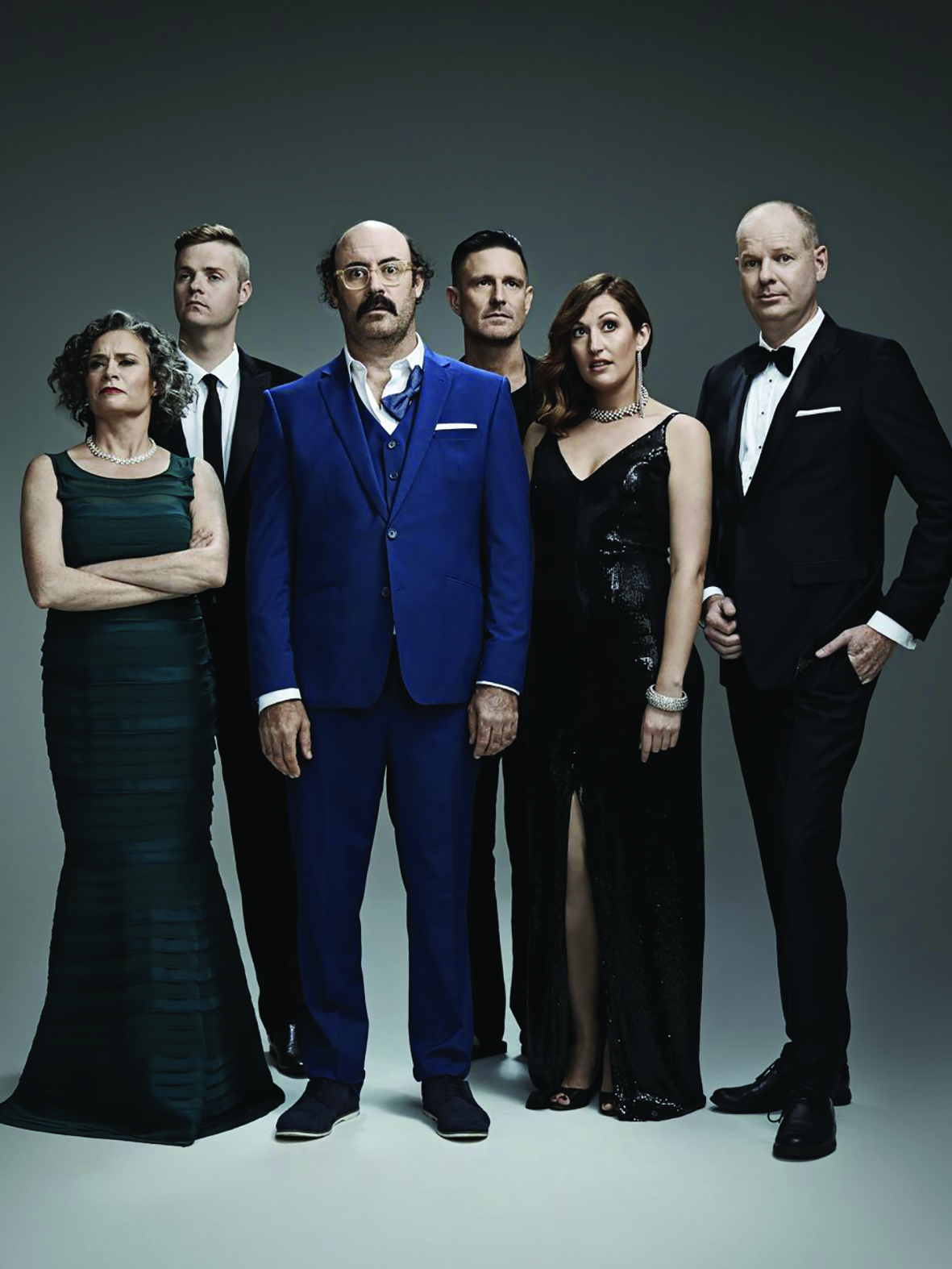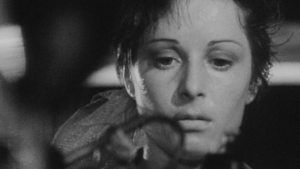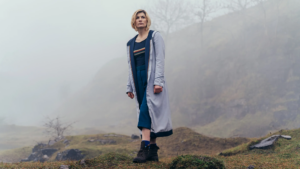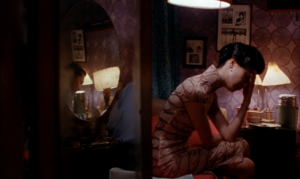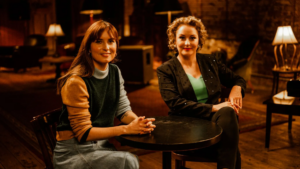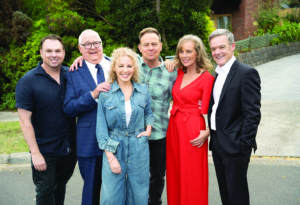As calls for the commissioning of local content on streaming services continue, one lovely place where movement is happening is the One Night Stan series. Developed by Guesswork Television and iconic local comedy management/representation company Token, this Stan series is high-budget, high-quality and high-profile in terms of its pool of talent.
The 2018 season features six comedians – Wil Anderson, Celia Pacquola, Tom Ballard, Sam Simmons, Judith Lucy and Tom Gleeson – who each perform a full-length show, and promotes these as having been ‘recorded live at Melbourne’s Comedy Theatre’. Watching the episodes feels like experiencing a mixture of live and staged, with some even deliberately including references to the apparatus of production. For example, in her episode, Pacquola breaks the fourth wall several times by telling the audience they are ‘being filmed’ and asking them to make her look good. It’s delightful and engaging – and the kind of acknowledgement of a live audience and the artifice of TV production that is rarely allowed to coexist.
Full-length stand-up comedy recordings have always been popular, but often also hard to place. Fellow comedy nerds like this writer will remember having coveted, bought and replayed comedy vinyl records until they literally wore out. For me, it was The Pick of Billy Connolly, a compilation originally released in 1981 but featuring material from before then. Stand-up – such as the annual Melbourne International Comedy Festival (MICF) Gala, held as an Oxfam fundraiser – has also appeared on television in small grabs; however, Jerry Seinfeld takes home the honour of having brought the format into audiences’ lounge rooms (and, accordingly, their lines of sight). In the US and the UK, ‘tonight’ and talk programs like those of Johnny Carson, David Letterman and Michael Parkinson provided a place for stand-up comedy as a format as well as the artists practising it to develop.
In places like the US, it’s often been pay TV that has enabled stand-up to enter into the domestic sphere. For a comedian, the HBO or Comedy Central ‘special’ is akin to landing the lead in a Hamlet production and, over time, everyone from Richard Pryor to Amy Schumer has featured in at least one. These specials usually re-emerge for Australian audiences as part of programming by streaming services like Stan or Netflix, or as DVDs for those still keen to trawl through their local stores to find them. Interestingly, the move from pay TV to online streaming has been seamless, with distribution and production meeting specialist fans easily as they move platforms in search of diversity and ease of access.
While Australian pay TV has featured stand-up comedy where it can – often by repeating the international specials first – local free-to-air has done its best to foster the local market. The emergence of local stand-up was perhaps most apparent in the 1989–1992 comedy sketch plus wonderful-grab-bag-of-other-stuff series The Big Gig. Hosted by then-emerging comedian Wendy Harmer and produced by now-ubiquitous local comedy producer and champion Ted Robinson, the show was live, risky and somehow still all held together by Harmer’s steady hand and mic. Harmer’s voice as an Australian – and, even more remarkably, an Australian woman – in what was a saturated international medium was not only unusual at the time, but remains so. Although she would only ever really have a spot lasting a few minutes at a time, it was enough to inspire a new generation watching at home.
Members of that generation went on to feature in local live and televised stand-up opportunities, including our short-lived but well-loved Tonight Show forays like the 1990–1993 Tonight Live with Steve Vizard and Andrew Denton’s 1994–1995 Denton, both of which were arguably successors to shows hosted by the king of Australian comedy, Graham Kennedy (such as In Melbourne Tonight). From these ‘slot’ ventures grew opportunities for the development of long-form stand-up on Australian television, most notably in the form of 2011’s Warehouse Comedy Festival, developed for the ABC and filmed as part of MICF.
The series returned in 2012 and has since received relatively regular replays on Aunty as well as a release on DVD and digital download including additional non-broadcast material and commentary. The second series showcases an impressive collection of local talent, including Hannah Gadsby, who, at the time of writing, has been selling out theatres in New York and London for the tour of her amazing show Nanette. With Netflix having secured a deal to produce its own version of Nanette, it’s clear that streaming is taking long-form stand-up seriously. Let’s wait to see what the current watching generation comes up with in the future.
